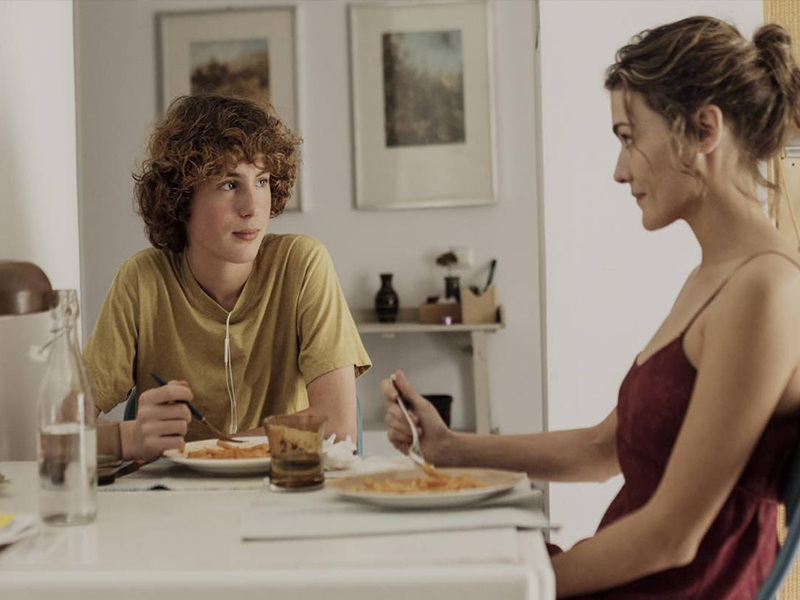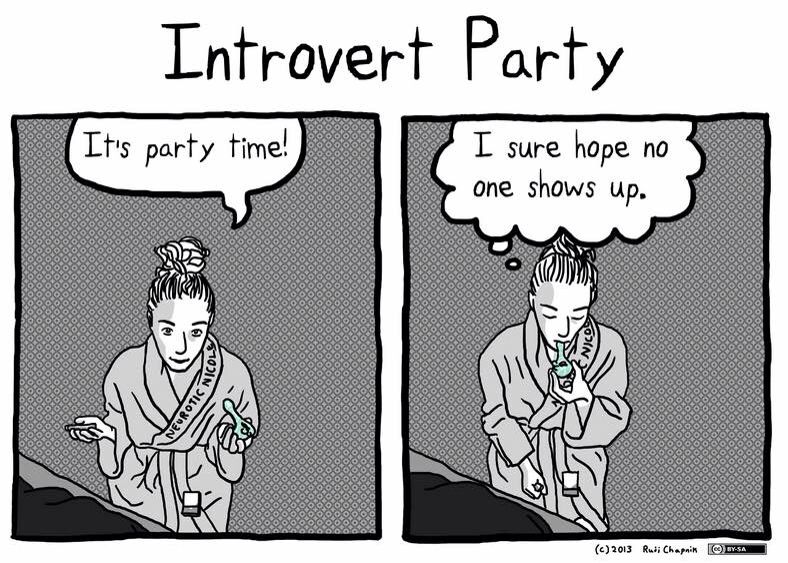The introverted mother
The Introverted Mother
A few years ago, our family vacationed with another family. I watched my extroverted friend play a string of games with her children, interspersed with sayings like, “I never get tired of my kids!” It was wonderful, but I felt worse about myself as the days went on. Was I a bad mother? Did I not love my kids as much as my friend loved hers?
The TugMotherhood is a challenge, and I believe it can be harder for the introvert. Being a mother is a 24/7 job with little respite. Being around people drains the introvert of her energy, whereas it energizes the extrovert. The introverted mother naturally prefers the inner world of the mind and regains perspective on life by being alone with time to process quietly. It is not that the introvert resents motherhood. Rather, it is easier for her to be sucked dry by the demands.
Advertise on TGC
With five little people in my life, my waking hours were filled with non-stop questions, noise, chaos, mess, and needs. It went against my quiet, peace-loving, introspective, ordered grain. I loved my children dearly, but I often plotted ways to get away from them. I felt torn between my children’s need for me and my own need for being alone.
The tug led to feelings of guilt. Why did I feel this constant urge to get away from my children if I loved them so much? Add to that tug the sincere Christian desire to sacrifice and you have a recipe for burnout. The guilt led me into a vicious circle. The harder I tried to be the mom I thought my kids needed me to be, the more intense the feelings of “I need to get away” would become and the guiltier I would feel, which would lead me to try even harder. I tried to change something I couldn’t change about myself.
We all have a standard we’re trying to meet. The perfect mother is always giving, entertaining, pro-active, energetic, ready to talk, and positive. The more you try to meet this standard, the more your failure will lead you either to pride or despair.
The introverted mother sometimes gives in to her desires to be alone at the expense of others. I must confess to using the TV as a babysitter one too many times, refusing to enter in to my kids’ conflicts out of sheer laziness, or telling them to just go away, because they were a nuisance to me. Some other typical introvert sins are being irritable when forced to be around people, feeling resentful for having to help when it costs more time than planned, and experiencing self-pity when your own needs aren’t being met.
Another temptation is to neglect your husband. I remember days where I had my fill of interaction, physical affection, and talking. The last thing I wanted was yet another person needing me and my affection in the evenings. My husband ended up getting the dregs of me.
Worst of all is the temptation to neglect time with God. Communing with the Lord seemed like I was trying to get away from my kids once again. Introverted moms need protected time of silence, prayer, journaling, meditating, and simply sitting at the feet of Jesus. Only God can give the supernatural ability to love beyond what comes naturally, but it comes at a price: spending time in his presence. Husbands who want their introverted wives to thrive instead of wither away must carve out time for them to be alone with God.
Only God can give the supernatural ability to love beyond what comes naturally, but it comes at a price: spending time in his presence. Husbands who want their introverted wives to thrive instead of wither away must carve out time for them to be alone with God.
The gospel frees me to embrace who I am while not using my weaknesses as excuses for laziness. My identity in Christ has to be the foundation upon which I build my personal identity, regardless of introversion or extroversion. In his sovereignty, he made me the right mother for my kids. He has promised to perfect me and even use my weaknesses in his service. Sure, there will be challenges, but that is how God intends to grow me and conform me to his image.
You will be stretched to your limits. Every time you fail or sin against your husband and children in your introverted way is an opportunity for you to receive grace from God and to live out the gospel: repent, ask for your family’s forgiveness, and let the Holy Spirit transform you. It is a hard but beautiful process to work out the story of redemption before your kids.
It is a hard but beautiful process to work out the story of redemption before your kids.
- Teach your kids to respect who you are. I often tell them, “The best way you can love me right now is letting me have some time alone.” This will teach them to respect friends, teachers, and future spouses.
- Build quiet time into your day. Babies can learn how to spend 15 minutes alone in their crib with a few toys. Older children can read in their rooms for up to an hour. It is good for children to learn to be alone and build a basis for future quiet times with God.
- Send kids outside to play and be loud.
- Introduce quiet, alone play time (Legos, drawing, puzzles). This activity fosters creativity and independence.
- Spend deliberate, focused times of play with your child. You do not have to be your child’s constant entertainer, but kids also need to have some undivided attention to feel loved.
- Maximize alone time.
 How about combining exercise with a sermon or worship music?
How about combining exercise with a sermon or worship music?
As an introvert, you can still do things with excellence to love your children. The more you play to your strengths, the less you will feel like motherhood rubs against your natural grain.
- Keep a journal for your children with funny things they said, signs of spiritual development, and thoughts about them. This gift will be invaluable to them as they see God’s hand at work in their lives.
- Write a letter of encouragement.
- Go on dates with each child, as introverts tend to do much better in one-on-one settings.
- Use quiet moments like watching a movie to cuddle, give a backrub, and simply be together.
- Explore the realm of ideas with your children through good books, audio books, videos, and so on.
- Pray for your children.
- Remember to share what you are thinking and what God is teaching you. I have to stretch myself to take this initiative, but my kids need to see my heart.

Eowyn Stoddard is a Mission to the World church-planting missionary who has served in Berlin since 2000 alongside her husband, David. She enjoys teaching the Bible, discipling refugees in their newfound faith, and being a mom to five children. She blogs regularly at The Eowiggle.
Surviving as an Introverted Mother
Years ago, I was chatting with my sister-in-law, who had babies at around the same time I did. She was talking about how much she loved her kids. When they were napping, she would go in and watch them sleep. Sometimes, she said, she was tempted to wake them up so that she could play with them.
When I heard that, I felt as if I was punched in the gut. I had never, in my few years as a parent, felt that way. Did she have some kind of innate mothering instinct that I lacked?
My husband and I had our children in rapid-fire succession, adding four kids to our family within four years. I was overwhelmed and outnumbered. The volume of work it took to keep my household running was exhausting. But there was something more to it than physical fatigue: parenting was emotionally exhausting. I felt trapped. I lived for naptime and bedtime. If one of the kids woke up early, I felt rage. I was desperate to get time away from them in any way I could. My overwhelming thoughts when they were napping were, Please don’t wake up. Please give me a little more time to myself. Please, just a few more minutes. I couldn’t imagine waking them up on purpose unless there was a fire.
But there was something more to it than physical fatigue: parenting was emotionally exhausting. I felt trapped. I lived for naptime and bedtime. If one of the kids woke up early, I felt rage. I was desperate to get time away from them in any way I could. My overwhelming thoughts when they were napping were, Please don’t wake up. Please give me a little more time to myself. Please, just a few more minutes. I couldn’t imagine waking them up on purpose unless there was a fire.
It wasn’t only the exchange with my sister-in-law that made me doubt myself. Society tells us that we should savor every precious moment with our kids, and I was struggling to do this. If motherhood had been one of my biggest goals in life, why did I want to get away from my children? Maybe I was a horrible mother. Or I suffered from some kind of defect, an intimacy disorder, or psychological baggage that kept me from being able to enjoy my children as much as other people did.
I made an appointment with a therapist and explained my feelings to her. I love my kids dearly, I told her. I enjoy being with them. But I felt like I needed a bigger chunk of time to myself.
I love my kids dearly, I told her. I enjoy being with them. But I felt like I needed a bigger chunk of time to myself.
I was eager for the therapist to explain my glitch. Was I innately selfish? Was I a narcissist?
After a few weeks of listening, my therapist put her clipboard away and asked me to listen closely to what she was going to say.
“Kristen, you’re an introvert,” she said. “There is nothing wrong with you beyond the fact that you need time to yourself to refuel and recharge. You are running on empty. And you need to stop beating yourself up over the fact that you need time alone. It’s how you’re wired.”
I’d never considered myself an introvert. I’m not shy. I’m not scared to speak to a room full of people. I consider myself a “people person.” I always assumed those traits meant I was an extrovert. But as I began to read some of the books my therapist suggested, it became clear: I’m an introvert. I need a lot of downtime to recharge for social interaction.
I spent a few months wrestling with my therapist’s interpretation. I wanted a quick fix, and introversion wasn’t something I could take a pill for or change with therapy. I disliked the idea that this was just how I was made. I was also worried that the introversion diagnosis was a convenient cop-out. As a person who struggles mightily with guilt, I found it hard to take my therapist’s advice and let myself off the hook—especially when berating myself is something I’m so good at!
Eventually, and slowly, I came to understand that my introversion was indeed behind how I felt and that my desire for time to myself was not an indicator of how much I love my kids. My therapist had to remind me many times that the fact that I was there, sitting in her office looking for a solution, was proof that I cared deeply about my children.
Eventually, I learned to accept—and even embrace—my identity as an introvert, and I found some tactics to help me survive parenthood.
I let myself off the hook. This was the most important step. I accepted who I am and the personality I was born with and stopped trying to change myself. Instead, I looked for external solutions to make my life more conducive to my needs as an introvert.
This was the most important step. I accepted who I am and the personality I was born with and stopped trying to change myself. Instead, I looked for external solutions to make my life more conducive to my needs as an introvert.
I shifted my career to involve less face-time with others. At the time I had children, I was working as a marriage and family therapist. My job was 100% human interaction. It’s no wonder I was drained. I spent all day listening to people talk, which left me little energy for anyone else. I shifted my role—I began writing more, and I also began teaching, which I found less draining. As I altered my professional role to give me more time to myself, I found I had more energy at home.
I found out-of-home childcare. Previously, any childcare I had for the kids involved someone coming to our home to watch them. Our house is small, and even if I worked from my room, I could still hear the kids and would inevitably listen in on their day. I finally decided that I needed alone time at home and found a quality Montessori preschool that would take my kids for three mornings a week. Those mornings alone were my saving grace during that stage.
Those mornings alone were my saving grace during that stage.
I instituted quiet time. While naptime provided me with some daily downtime, I also scheduled our day to include designated quiet time, when each kid played alone for about 30 minutes. In addition to giving me a mental break, this time was of great benefit to my kids who learned quiet, independent play. Some of my kids are introverts as well, and this quiet time was just as helpful for them as it was for me. As they’ve gotten older, quiet time has morphed into reading time, and it remains a great way for all of us to have a little time alone to recharge.
These small shifts made a huge difference in my ability to parent well and to be present and connected with my kids. I didn’t need to change who I was, and I didn’t have a fatal flaw that prevented me from being a good mom. I just needed to accept my temperament and honor my own needs.
things to look out for ❗️☘️ ( ͡ʘ ͜ʖ ͡ʘ)
Contents
- What's the difference between an introvert and an extrovert?
- What happens when introverts become mothers?
- Strengths of introverted mothers
- 1.
 The ability to radiate calmness
The ability to radiate calmness - 2. The ability to “let go” of the child in time
- 3. The ability to listen carefully
- 4. It is rarely boring with you
- What can be difficult for an introverted mother
- 1. Small talk
- 2. Lots of hustle and bustle
- 3. Extroverted children
Being an introvert, you can be just as good a mother as an extrovert (and vice versa). Your strengths and weaknesses are just different. No personality trait is "better" than another as such. However, as a more introverted type, you should be aware that you have different needs and therefore need to use different strategies than those used by extroverts to balance motherhood and self in a healthy way.
See also: “You make yourself an outsider” - why parents should not worry that they are raising an introverted child
Introvert and extrovert: what is the difference?
Extroverts get their energy from interacting with other people. If you spend too much time alone, you will quickly feel drained, irritable, and bored.
If you spend too much time alone, you will quickly feel drained, irritable, and bored.
Introverts, on the other hand, draw energy from themselves, from their own ideas and thoughts, and therefore, above all, need sufficient rest and solitude to recharge their batteries.
Of course, no one is "only" an introvert or "only" an extrovert. Everyone is somewhere in the middle on the scale. Therefore, it is important that everyone finds an individually suitable dose of external stimulation, on the one hand, and enough opportunities for himself, on the other.
What happens when introverts become mothers?
Like all women, things change for introverts once they (have to) take care of a child 24 hours a day with little or no time to be alone.
However, in this context, mothers simply need to be aware of their special needs.
Standard family craziness, extremely tiring for typical introverts.
The routine of the day with children—noise, clutter, variety of tasks to be done at the same time, children's demands for parental attention and activities—can quickly push an introverted mother to breaking point. It seems to her that she is about to explode, that the cup has overflowed.
It seems to her that she is about to explode, that the cup has overflowed.
As an introverted mother, you should always make sure you have rest periods to compensate. If you find someone to take care of the kids for you, you can make the best use of the "buy" time by being completely alone.
Strengths of introverted mothers
Often such mothers consider themselves bad parents, because they are supposed to enjoy every second with a child, and not look for opportunities to retire. But introverts have many wonderful qualities that help them raise children. For example:
1. The ability to radiate calmness
As an introverted mother, you have a calming influence on the family. You “automatically” make sure that the children do not get overexcited and take sufficient breaks.
2. The ability to "let go" of the child in time
It is easy for you to accept the fact that each child develops in his own way and at his own pace and needs personal freedom. As a mother, you manage to keep a low profile and allow the children to have their own experience.
As a mother, you manage to keep a low profile and allow the children to have their own experience.
3. The ability to listen carefully
As an introvert, it is easy for you to listen. You can fully focus on your child's problems, you are compassionate, you reflect on what is being said, and you are not eager to bring your views to the fore. This will make your child feel valued and accepted.
4. You are rarely bored.
As an introvert, you are never bored. While young extrovert mothers can quickly feel lonely if they (have to) spend a lot of time alone with their baby, introverts love to be in their own thoughts and can do their own thing well.
What can be difficult for an introverted mother
Having studied their strengths, introverted mothers need to think about their weaknesses in order to put emphasis on them.
1. Small talk
Women who are introverts do not appreciate superficial exchange of ideas with mothers who are not (yet) very familiar to them: baby groups, pre-school courses, carnival parties, fairs, activities in kindergarten, sports club or school are quite tiring, because as a stimulating factor they negatively affect an introverted woman.
2. A lot of noise and fuss
Working with several children at the same time - for example, at children's birthday parties, when several kids are visiting or at family gatherings - this is a challenge for an introverted mother, after which she needs a lot of time for herself to recharge your batteries and recover.
3. Extroverted children
When an extroverted child is born to an introverted mother, it is difficult for her to understand and support his strong need for activity and communication with friends.
The important thing here is to find, with tact and sensitivity, a good compromise that both parties can come to terms with. The older and more independent children become, the easier it should be.
Don't expect to easily lead an extroverted life.
It is important for your self-esteem to recognize and accept yourself as an introvert.
If you compare your life with that of more extroverted mothers, you will see that they do more work on weekends, go out more in the evenings, have a larger network of friends, and, in your opinion, simply "do more" than you. It seems that they are trying, and you are not capable of it.
It seems that they are trying, and you are not capable of it.
But why should you strive for such a way of life if it does not satisfy you at all?
Extroverts need external stimuli to feel happy, just as you need time alone to feel good too. In and of itself, it is not “better” to spend your life doing a lot of things. Life is good and successful if you feel comfortable in it - you must set it up accordingly.
It's okay if you need some time away from your children.
Do you sometimes wish you could spend more time away from your children? Do you have any remorse about this and think you are a "bad" mother?
Accept as part of your identity that you need to be alone to recuperate. Only then can you devote your energy to your children again.
It's okay when you leave your children in kindergarten, with grandparents or a nanny. Your child gets a double benefit: it is good for the baby to have several objects of affection, and he is pleased when the mother can return to everyday life in a good mood after a respite.
Read also: How not to break an introverted child School of Parenting Excellence Being an introvert, you can be just as good a mother as an extrovert (and vice versa). Your strengths and weaknesses are just different. No personality trait is "better" than another as such. However, as a more introverted type, you should be aware that you have different needs and therefore need to use different strategies than those used by extroverts to balance motherhood and self in a healthy way. See also: "You make yourself an outsider" - why parents should not worry that they are raising an introverted child Extroverts get their energy from interacting with other people. If you spend too much time alone, you will quickly feel drained, irritable, and bored. Introverts, on the other hand, draw energy from themselves, from their own ideas and thoughts, and therefore, above all, need sufficient rest and solitude to recharge their batteries. Of course, no one is "only" an introvert or "only" an extrovert. Everyone is somewhere in the middle on the scale. Therefore, it is important that everyone finds an individually suitable dose of external stimulation, on the one hand, and enough opportunities for himself, on the other. Like all women, things change for introverts once they (have to) take care of a child 24 hours a day with little or no time to be alone. However, in this context, mothers simply need to be aware of their special needs. Standard family craziness, extremely tiring for typical introverts. The routine of the day with children—noise, clutter, variety of tasks to be done at the same time, children's demands for parental attention and activities—can quickly push an introverted mother to breaking point. It seems to her that she is about to explode, that the cup has overflowed. As an introverted mother, you should always make sure you have rest periods to compensate. Often such mothers consider themselves bad parents, because they are supposed to enjoy every second with a child, and not look for opportunities to retire. But introverts have many wonderful qualities that help them raise children. For example: As an introverted mother, you have a calming influence on the family. You “automatically” make sure that the children do not get overexcited and take sufficient breaks. It is easy for you to accept the fact that each child develops in his own way and at his own pace and needs personal freedom. As a mother, you manage to keep a low profile and allow the children to have their own experience. As an introvert, it is easy for you to listen. As an introvert, you are never bored. While young extrovert mothers can quickly feel lonely if they (have to) spend a lot of time alone with their baby, introverts love to be in their own thoughts and can do their own thing well. Having studied their strengths, introverted mothers need to think about their weaknesses in order to put emphasis on them. Women who are introverts do not appreciate superficial exchange of ideas with mothers who are not (yet) very familiar to them: baby groups, pre-school courses, carnival parties, fairs, activities in kindergarten, sports club or school are quite tiring, because as a stimulating factor they negatively affect an introverted woman. Working with several children at the same time - for example, at children's birthday parties, when several kids are visiting or at family gatherings - this is a challenge for an introverted mother, after which she needs a lot of time for herself to recharge your batteries and recover. When an extroverted child is born to an introverted mother, it is difficult for her to understand and support his strong need for activity and communication with friends. The important thing here is to find, with tact and sensitivity, a good compromise that both parties can come to terms with. The older and more independent children become, the easier it should be. Don't expect to easily lead an extroverted life. It is important for your self-esteem to recognize and accept yourself as an introvert. If you compare your life with that of more extroverted mothers, you will see that they do more work on weekends, go out more in the evenings, have a larger network of friends, and, in your opinion, simply "do more" than you. But why should you strive for such a way of life if it does not satisfy you at all? Extroverts need external stimuli to feel happy, just as you need time alone to feel good too. In and of itself, it is not “better” to spend your life doing a lot of things. Life is good and successful if you feel comfortable in it - you must set it up accordingly. It's okay if you need some time away from your children. Do you sometimes wish you could spend more time away from your children? Do you have any remorse about this and think you are a "bad" mother? Accept as part of your identity that you need to be alone to recuperate. Only then can you devote your energy to your children again. It's okay when you leave your children in kindergarten, with grandparents or a nanny. Your child gets a double benefit: it is good for the baby to have several objects of affection, and he is pleased when the mother can return to everyday life in a good mood after a respite. Introvert and extrovert: what's the difference?

What happens when introverts become mothers?
 If you find someone to take care of the kids for you, you can make the best use of the "buy" time by being completely alone.
If you find someone to take care of the kids for you, you can make the best use of the "buy" time by being completely alone. Strengths of introverted mothers
1. The ability to radiate calmness
2. The ability to "let go" of the child in time
3. The ability to listen carefully
 You can fully focus on your child's problems, you are compassionate, you reflect on what is being said, and you are not eager to bring your views to the fore. This will make your child feel valued and accepted.
You can fully focus on your child's problems, you are compassionate, you reflect on what is being said, and you are not eager to bring your views to the fore. This will make your child feel valued and accepted. 4. You are rarely bored.
What can be difficult for an introverted mother
1. Small talk

2. A lot of noise and fuss
3. Extroverted children
 It seems that they are trying, and you are not capable of it.
It seems that they are trying, and you are not capable of it.















